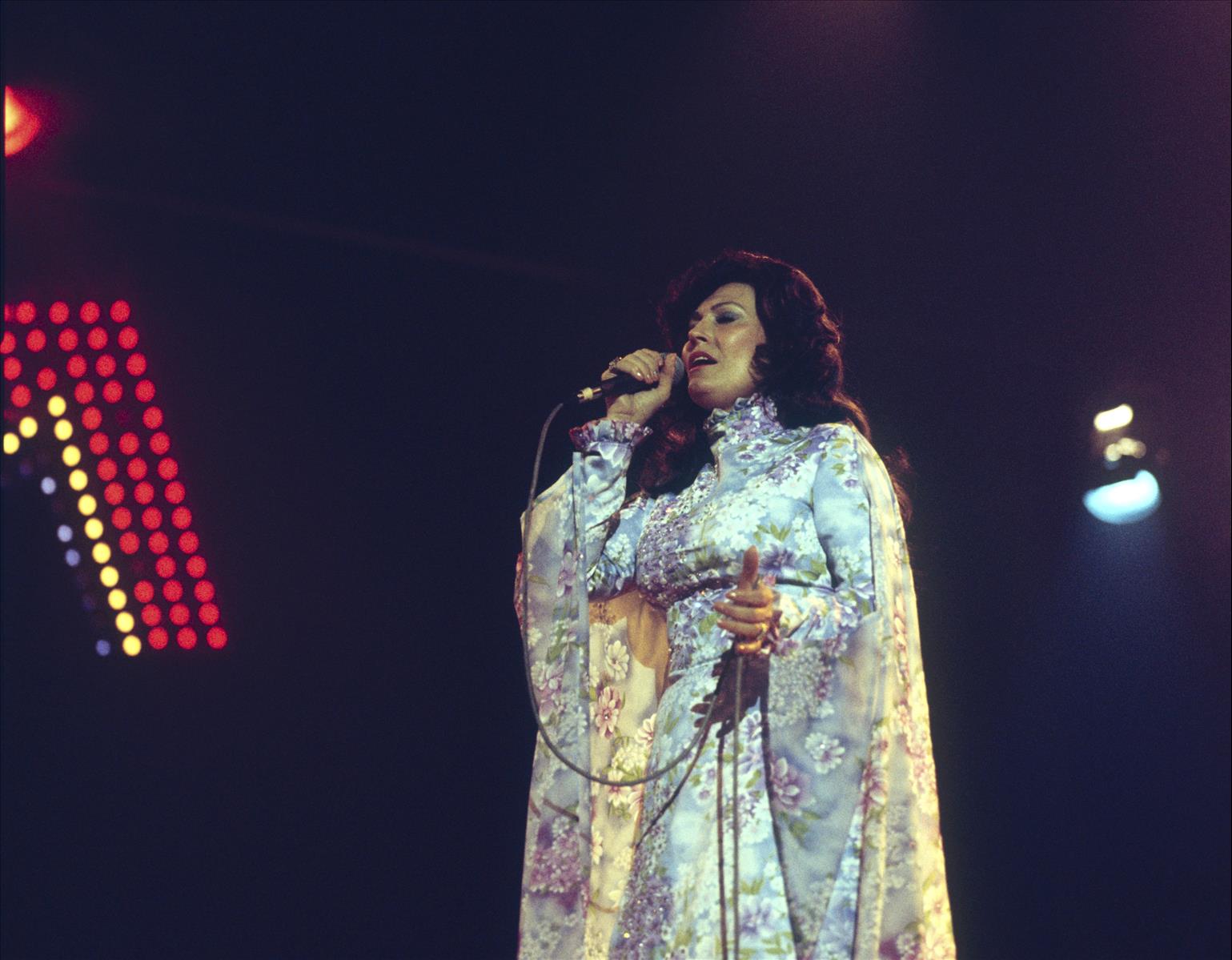
Loretta Lynn Was More Than A Great Songwriter She Was A Spokeswoman For White Rural Working-Class Women
Loretta Lynn's marks the end of a remarkable life of achievement in country music.
Her dramatic life story – retold in the 1980 award-winning film“ ,” based on – made Lynn a household name. She grew up in poverty in a small Kentucky mining town, marrying and starting a family as a teenager before reaching unprecedented heights of commercial success as a recording artist of modern country music.
But as a and author of“ ,” I know that Lynn represented more than just star power and fame in country music – she spoke to the concerns of women, especially white working-class women in rural and suburban America.
Speaking up, singing outLynn's rise in the 1960s took place when country music appeared tied to conservative politics. It was a time when Merle Haggard's“ ,” with its attacks on counterculture, marijuana and draft-card burning, became a populist anthem for the country's cultural conservatives.
In contrast, Lynn's songwriting continued the legacy of , and other women in country music who were willing to speak up about the concerns of American women.
Lynn's songs defied societal expectations by connecting her musical representations of working-class and rural women to broader social issues affecting women across the U.S.
She aimed for her music to articulate the fears, dreams and anger of women living in a patriarchal society. It railed against those who idealized women's domestic roles and demonized outspoken feminists.
'There's gonna be some changes'Specifically, for a generation of predominantly white women in the 1960s and 1970s who did not identify as urban or college-educated feminists, Lynn's music offered candid conversations about their private lives as wives and mothers.
As Lynn , her audience recognized her as a“mother and a wife and a daughter, who had feelings just like other women.”
Loretta Lynn made the concerns of everyday American women a focal point of her work.
She did this through clever and witty songwriting and lyrical techniques that combined the vernacular of her audience with her resonant voice.
Meanwhile, the song arrangements of Owen Bradley of Decca Records directed Lynn's musical talents to a broad audience. He combined the edgier sound of honky-tonk instrumentation – electric guitars, pedal steels and fiddles – with the polish of the Nashville sound by including the smooth sounding vocal harmonies of the vocal quartet the , as heard in numerous country, gospel and rock 'n' roll recordings.
This provided a sound of strength and conviction to accompany Lynn's bold and forthright songs as she laid bare the double standards of gender roles.
With her assertive and resonant voice, Lynn, in her 1966 track“ ,” warns men not to expect women to be waiting at home, sexually available for them after they'd spent the night drinking:
In a similar vein, Lynn, who were inspired by her fraught marriage to Oliver“Doolittle” Lynn, confronted the“other woman” in songs such as 1966's“You Ain't Woman Enough” and 1968's“Fist City.”
A lasting legacyFully aware that her personalized accounts became political messages for her fan base of women, Lynn co-wrote and recorded“” in 1975. It was a rare foray into the topic of women's reproductive rights for country music. In typical fashion, though, Lynn approached the issue from the perspective of a rural working-class woman:
The song's sexual innuendos about cavorting roosters and hens incorporated the double entendres and humor of early blues and country, while providing a frank discussion about female sexual pleasure. It also addressed the right for women to take control over their bodies and reproduction.
The song came out just two years after , granting women the ability to govern their own reproductive health through abortion.
Indeed, Lynn commented on the Supreme Court's ruling in her autobiography:
Her recording“” spoke to married women who wanted to be able to space out their children and prevent unwanted pregnancies so that they could pursue educational and professional opportunities.
In interviews, Lynn discussed at length how female listeners flocked to her after concerts, relieved to find a public figure with whom they felt comfortable to discuss birth control.
Not everyone was thrilled, though. Male country “The Pill” from the airwaves. Nonetheless, the recording became her biggest seller in 1975 and furthered Lynn's reputation as a spokeswoman for white rural working-class women.
Her music also inspired the women in country music who followed her to further explore issues of gender roles. Lynn's legacy lives on in the music of female country artists – such as and – who learned from Lynn how to create music that confronts and triumphs over the societal obstacles that women face.
While all of country music will mourn the death of Lynn, it is perhaps her female fans who will feel the loss more acutely. Lynn gave them a social and political voice, and helped make country music a genre relevant to the complexities of women's lives.
Flowers left by fans on Loretta Lynn's star on the Hollywood Walk of Fame in Los Angeles.

Legal Disclaimer:
MENAFN provides the
information “as is” without warranty of any kind. We do not accept
any responsibility or liability for the accuracy, content, images,
videos, licenses, completeness, legality, or reliability of the information
contained in this article. If you have any complaints or copyright
issues related to this article, kindly contact the provider above.


















Comments
No comment